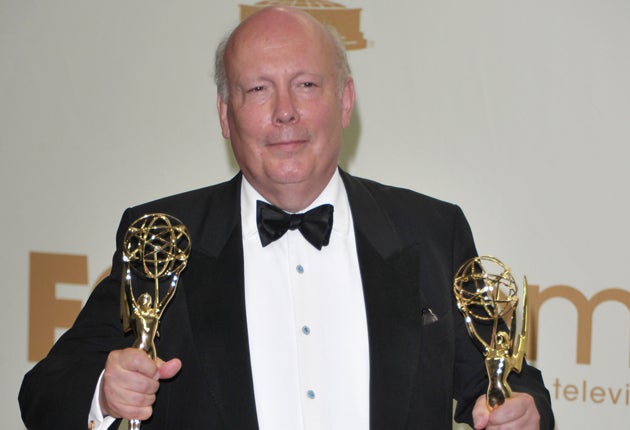Julian Fellowes says reading Shakespeare requires an expensive education. Does he speak in jest?
The Downton Abbey man would do well to spend time at a Croydon high school

Poor old Julian Fellowes. Like the twit he played with such panache in Monarch of the Glen - that blundering but lovable Earl of Killwillie – the Downton Abbey writer can’t seem to help mouthing off at the most inadvisable of moments.
Seeing Shakespeare in the original, Fellowes has boldly announced, requires either a private education, or an elite university degree. Speaking in defence of his partly-modernised (and much-maligned) adapted screenplay of Shakespeare’s Romeo and Juliet, Fellowes told the BBC: “To see the original in its absolutely unchanged form you require a kind of Shakespearian scholarship and you need to understand the language and analyse it.
“I can do that because I had a very expensive education,” he added. “I went to Cambridge. Not everyone did that.”
Oh dear: the mind doth boggle. Now I’m of the opinion that if you were educated at Ampleforth followed by Cambridge, and if your father’s name is Peregrine Edward Launcelot, you’d probably best fly under the radar when these topics crop up. Not so Fellowes. His daring superiority, it seems, knows no bounds.
Of course, there are plenty of reasons why Fellowes is demonstrably wrong. It is patently, absurdly, preposterously obvious that an education without privilege does not preclude an appreciation of “difficult” literature. Having taught Shakespeare at a secondary school to children from both affluent and poor families I can only recommend that Fellowes takes a moment in the future to sit in on a Year 8 Othello lesson in East Croydon. He would most likely see a group of 12 and 13-year-olds, from a mix of demographic backgrounds, intelligently and incisively discussing the language of racism in the early 17th Century.
And what, I wonder, would the 20th Century’s greatest Shakespearian scholars have to say on the subject? What of Stanley Wells – arguably the greatest living editor of the Bard – and a grammar school boy (like Bill Shakespeare himself) who went on to take his English degree from UCL.
But really, of course, none of that matters. Fellowes made his comments – it seems to me – not out of a trenchant belief that Shakespeare’s writing is impenetrable to the poorly educated, but rather as an artistic subterfuge because his film was deemed crap by critics and scholars alike.
His Romeo and Juliet – a limp-fisted affair by all accounts – offers neither the stately charm of Franco Zefirelli’s 1968 version of the play, nor the artistic audacity of Baz Lurhamm’s 1996 adaptation. Most notably of all, it lacks the visual flair necessary to support Shakespeare’s more unforgivingly archaic lines.
That failure of artistic imagination is the reason the Downton Abbey writer has equipped his adaptation with idiot-proof dialogue – not a benevolent desire to elucidate Early Modern English for the masses.
Join our commenting forum
Join thought-provoking conversations, follow other Independent readers and see their replies
Comments
Bookmark popover
Removed from bookmarks